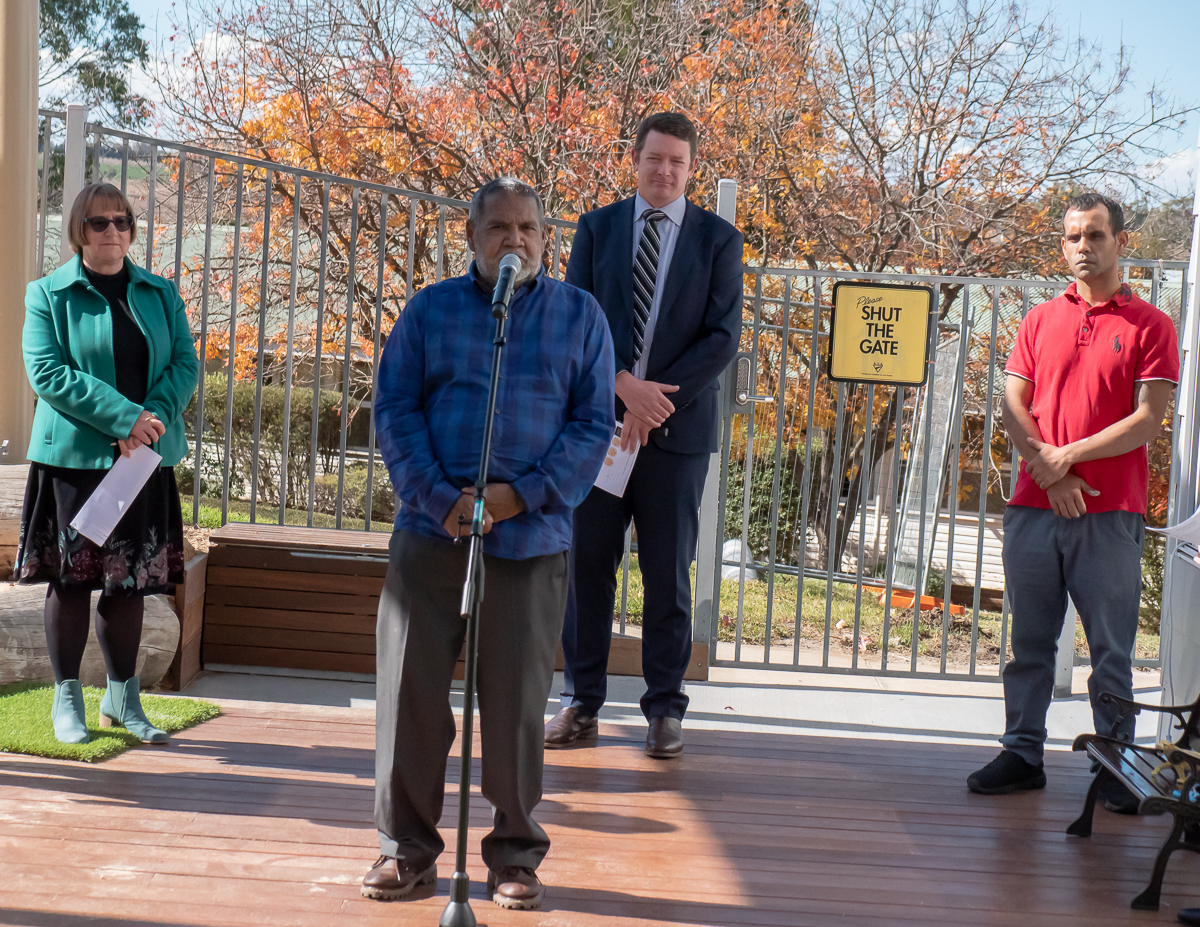The University of New England’s Yarm Gwanga Preschool and Early Education Centre has launched its refurbished outdoor playspace today, much to the delight and eager anticipation of the Centre’s children.
Made from natural materials such as logs and stones, the space is designed to encourage children’s engagement with their environment through nature-based play.
The activity area reflects contemporary best practice in early childhood education playspace design. A number of UNE academic staff members have also generously contributed their expertise to the layout and content of the sensory, vegetable and native bush gardens.
Centre director, Galia Urquhart said it is important that the children are able to play in an environment that creates an opportunity for them to care about the world they live in.
“Yarm Gwanga means ‘a place for children’. So it is appropriate that we offer them a playspace that teaches while it entertains,” Ms Urquhart said.
“The general perception is that Aussies are an outdoor nation, but recent research suggests that we, and especially children, are spending less and less time outdoors and more time indoors. This is partially because of easy access to smart devices.
“By taking the classroom outside we encourage open-ended play which leads to children being more adventurous, creative and resilient. Their imaginations are engaged and they are inspired to explore their surrounds.”
The new playground has the added advantage of flexibility - the two different interactive age-group areas feature interchangeable and replaceable components that can be swapped around for a new look and feel as required.
Director of UNE Life, David Schmude, said planning for the project began in July 2017 when initial ideas and concepts were explored.
“A lot of planning went into the design. Making it happen was a collaborate effort by UNE and external stakeholders but I couldn’t be more pleased with the outcome,” Mr Schmude said.
“We now have a space which allows children endless opportunities to explore and discover, and so learn.”
While being physically active is important, cultural enrichment is also a high priority for the Centre.
“Approximately 30 per cent of our children speak a language other than English at home. Learning about other cultures is something that happens daily and organically,” Ms Urquhart said.
The Centre can accommodate up to 56 children between the ages of eight weeks and five years and employs three Early Childhood teachers and 12 staff with either a diploma or Certificate III in Early Childhood qualification. It is currently at capacity.


